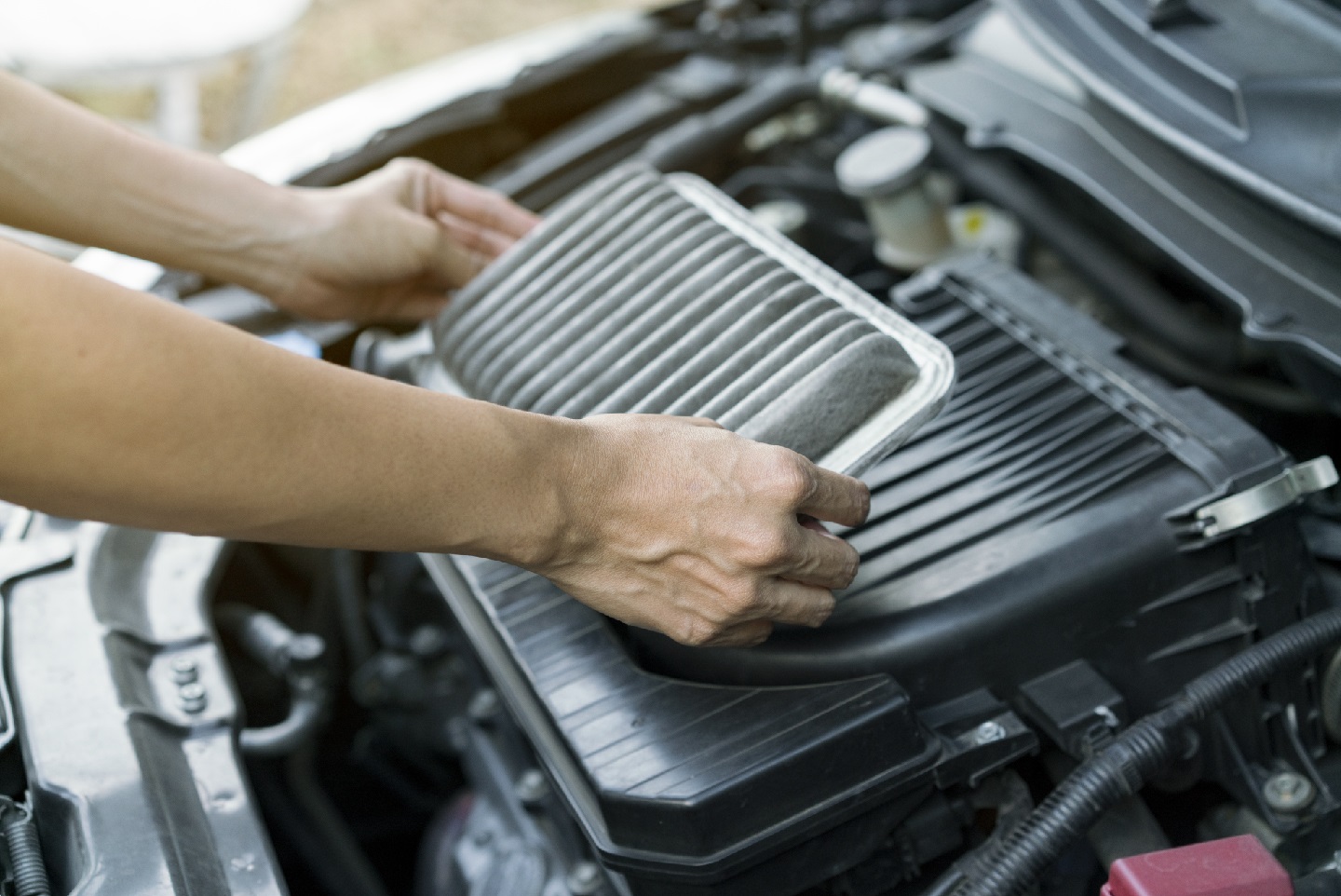If you want your vehicle to run smoothly, you need to ensure it’s in good working order – and a big part of that is staying on top of regular filter changes and checkups. The mechanics of your car depend heavily on filters to prevent contamination from affecting performance. Each filter, from oil to transmission, has its own unique role in keeping you and your car running smoothly.
The two biggest benefits of regular filter changes include increased fuel efficiency and reduced emissions.
There are four types of car filters:
- Oil
- Fuel
- Transmission
- Air
Let’s go over each one in more detail.
Oil Filters
Engine oil is responsible for lubricating the moving components inside your engine. Its job is to regulate engine operating temperatures. But over time, all that junk can accumulate (think moisture, dust, corrosion, and metal particles) and cause the oil to become dirty. The oil filter traps contaminants on their way through the engine.
This filter should be changed at regular, specific intervals. Some signs of a failing oil filter include the check engine light, decreased engine oil pressure, or knocking sounds emanating from the engine.
Transmission Filters
Transmission filters act as specialized strainers that keep your transmission fluid clean.
Transmission fluid ensures your car can shift smoothly through lubrication of the parts contained within your transmission system. It also keeps the system from over-heating and the gears from grinding. This fluid becomes contaminated over time, and this is where the filter comes in.
Of course, with too many contaminants, transmission filters also become clogged at some point, too, which restricts the flow of fluid and leads to issues with performance. You may realize you have a clogged transmission filter if you hear rattling or whining noises, or experience rough gear-shifting.
Fuel Filters
Most cars on the road now run on internal combustion engines, relying on fuel, air, and a controlled spark to convert energy into movement. This happens via a system of complex mechanical processes.
Over time, your fuel system gets contaminated due to rust, moisture and by-products of fuel degradation. Your vehicle’s fuel filter is designed to prevent this contamination from reaching the fuel injector and other high-precision parts and damaging them.
This filter also becomes clogged with time, which is why you need regular fuel filter replacements. How frequently you need to get this filter changed will depend on the road conditions in your area and your driving habits.
Signs that the fuel filter is clogged include:
- Trouble starting your car
- Stalling engine
- Reduced gas mileage
- Sputtering noise
- Decreased engine power
Thing is, problems with the fuel filter can affect other parts of the system which can result in more complicated, costly repairs.
Air Filters
Most cars have two air filters, the cabin air and engine air filters, that filter the air emitting into your vehicle’s cabin and engine.
- Cabin Filter: The cabin filter maintains the air quality inside the vehicle because it captures pollutants such as allergens and dust before you can breathe them in. On top of making your allergies worse, a dirty, clogged cabin filter may result in a wide range of AC problems, such as musty odors and reduced airflow. And in the winter, clogged cabin filters make it tougher to de-fog your windows.
- Engine Filter: This filter keeps dust, dirt, and pollutants out of your engine so they don’t get into the passenger compartment. Because internal combustion engines need air to properly function, a clean engine filter is critical to performance and efficiency. It’s important to have your engine air filter replaced at least as often as recommended by your manufacturer.
Signs of a dirty engine air filter include:
- Lower fuel economy
- Engine misfires
- Damage to other parts of the engine, such as spark plugs
Research shows that clean engine air filters see a big improvement in acceleration times!
As you can see, there are many types of filters operating within your car right now, and they all help the vehicle run cleaner and smoother. Stick to a regular schedule of cleaning, replacing and checking these four integral filters so your vehicle runs at optimal efficiency.
Contact Rick and Ray’s Auto Plaza
To request an appointment, fill out our online form or contact us today in Fort Worth at 817-335-2973. We can provide you with any of the above filter changes, and check any other component of your vehicle that you may be concerned with.


